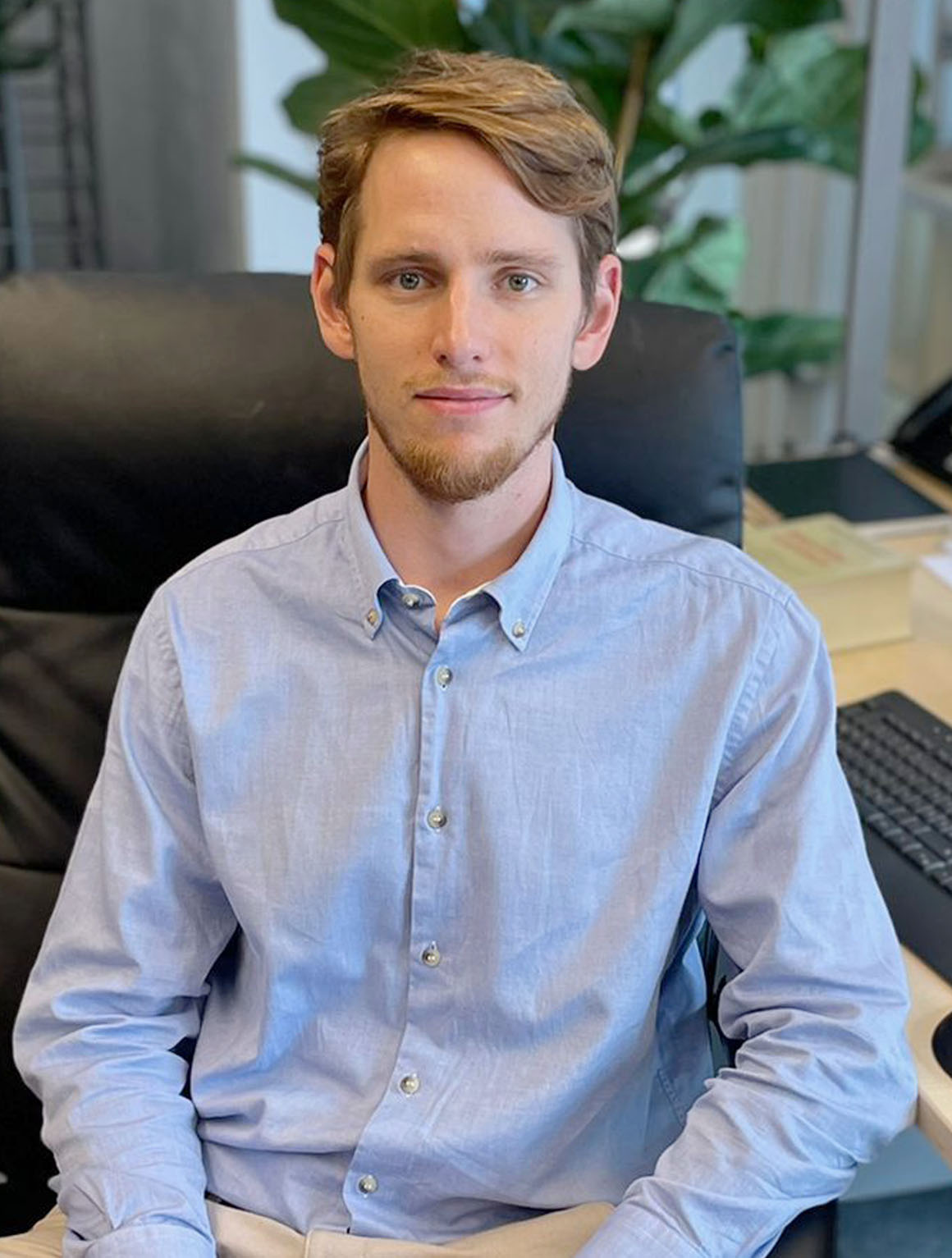Back to Overview

Martin Fabry PhD
Martin Fabry finished his bachelor’s degree in molecular biomedicine at the University of Bonn in 2014 and moved to the US as a visiting scientist at Cold Spring Harbor Laboratory (New York, US) working on improving CRISPR/Cas9 technologies. Following completion of a master’s degree in life and medical sciences in 2016 with emphasis on molecular mechanisms of immunity, Martin started his PhD in Medical Sciences with Cancer Research UK at the University of Cambridge studying genome organisation and stability.
After graduating with his doctorate degree in 2020, Martin worked as postdoctoral fellow in computational biology at the Gurdon Institute and European Bioinformatics Institute (EBI) in Cambridge with focus on stem cell development and establishing new technologies for stem cell differentiation.
Martin joined IP2 in 2018 as scientific consultant and started as a patent attorney candidate in late 2021.
- Life Science 100%
What more there is to say...
In his leisure time Martin likes running, hiking, diving and rowing.
What moves me
Teslas Robotaxi crashed
In the US, autonomous cabs are already an integral part of transportation, especially in cities such as San Francisco, Los Angeles and Phoenix. Waymo, an Alphabet Group company, is the leading provider in this area. Waymo currently has 1,500 robotaxis on the road and,...
First Aid
From left to right: David – Viola – Tamara – Uschi – Bernd – Simona – Martin – Dietmar – Bonnie - Vera Did you know that only 40% of the German population are able to provide first aid in an emergency? This is an astonishingly low figure when you compare it with our...
Magic Mushrooms
Are mushrooms excluded from patent protection? If a green-blue film of mold covers bread, fruit or other foodstuffs, the food is considered hazardous to health and ends up in the garbage can. In biotechnology however, molds, especially of the genus Aspergillus, are...
Back to Overview



